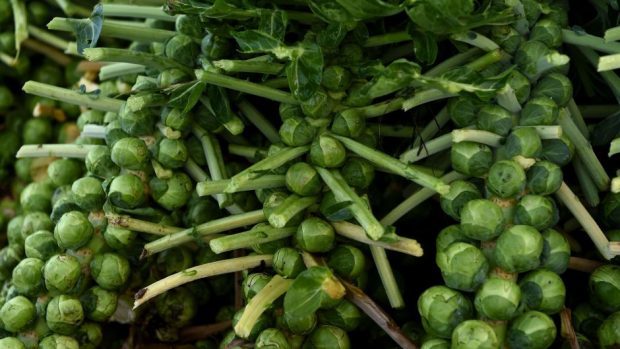Plant researchers are using the science behind home-pregnancy tests to detect the presence of diseases in vegetable crops, including brussels sprouts.
Trials are currently under way to help protect brassica crops – sprouts, broccoli and cabbage – and onions from diseases including ring spot, light leaf spot and downy mildew.
The pregnancy test technology, known as a lateral flow device (LFD), is being used to pick up the presence of infective spores carried in the air around crops in the field.
The test results, together with weather data, could indicate how likely a disease is to develop, allowing growers to decide if crop protection methods are needed or not.
Further development work is now under way to enable growers to get immediate results, and thus remove the need to send samples away to laboratories for further testing.
“When it’s fully developed this simple, low-cost tool, allowing growers to test whether there is a risk of diseases developing on their crops, will help prevent significant financial losses and reduce the need to use conventional methods to protect their crops,” said Cathryn Lambourne, of AHDB, which is carrying out the project in conjunction with Warwickshire College and Mologic Ltd. “Over the last four years we’ve been developing the lateral flow device test, demonstrating how simple and effective it is, to give growers the confidence to rely on the results and make appropriate decisions for their business.”
Carl Sharp, an agronomist from the Allium and Brassica Centre, said the technology could be a “big game changer” for growers.
He said: “If we can get kit like this developed to take out with us, within 10 minutes of walking into a field, growers will have results which show what they need to do to protect their crops.”
Kettle Produce’s Euan Alexander said the tests would help growers treat crops before disease rendered them unmarketable.
